Johnny Marr - Profile
by Kimberly Bright
published: 8 / 11 / 2016
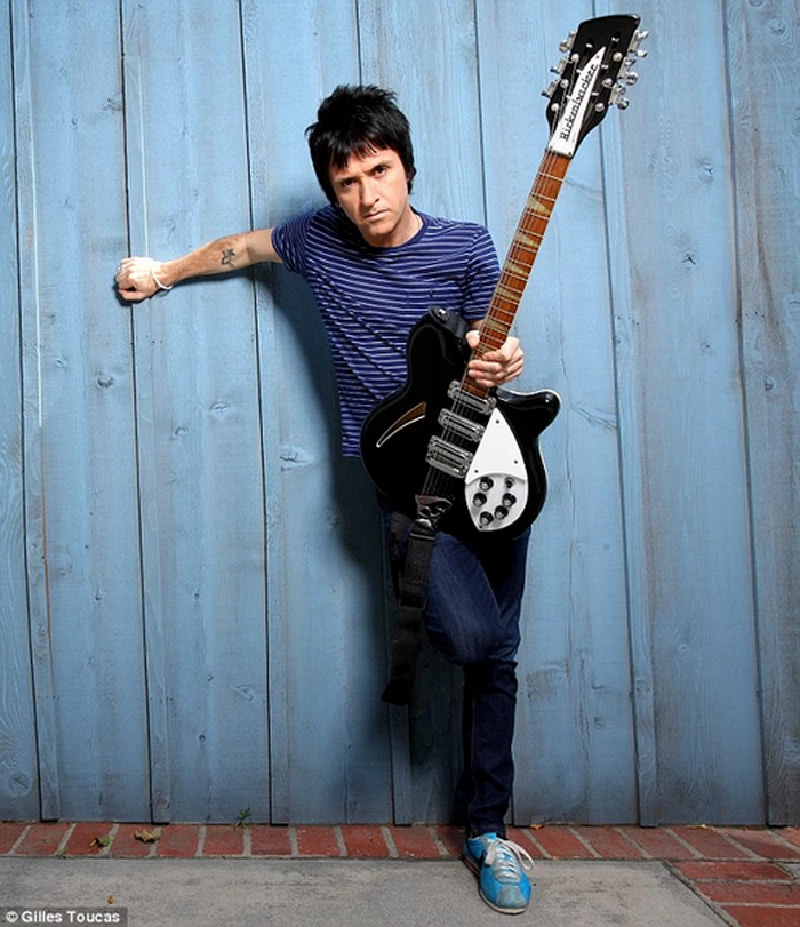
intro
With his autobiography just out, Kimberly Bright looks at the impact and influence of Johnny Marr on an entire generation of British guitar players and how he changed the direction of guitar culture before he was twenty-five
Johnny Marr has long been revered as the best guitarist of his generation, the modern post-punk British guitar anti-hero who singled-handedly rescued guitar culture from engulfment by synth-pop in the ‘80s and then, with the help of his dedicated followers, wrested it away from tuneless shredders in the ‘90s and beyond. Who else could have gotten away with telling Guitar World, still very much in thrall to various shades of metal machismo in 1990: “There's a lot of guitar culture that I don't like at all. I find the traditional idea of the guitar hero to be really irrelevant to the 1990s. I don't think that young people are that impressed with some guy brandishing Spandex trousers and a hideously shaped guitar, playing that kind of masturbatory, egotistical noise. Being a soloist who wants to just display virtuosity is a dated philosophy, and I don't think there's any room for it in pop music. It's the last stand of late-'60s/early-'70s rockism, and it should have gone a long time ago… I don't know about America, but here, no one has any respect for someone who can play a million notes per minute but can't put together a decent tune that someone can sing to or feel some sort of emotion from. I have a healthy respect for guitarists like Joe Satriani and Eddie Van Halen, disciplined players who really know what they're doing -- if you're going to be a virtuoso, you can't be hit-and-miss. But I think people like Yngwie Malmsteen should be forgotten as soon as possible -- I really do. It's got very little to do with music, and the 'I'm the fastest gun in town' idea is almost like homosexual panic. Nothing against gays, but when players perpetrate this incredibly sexist image of being so macho, I find it suspicious." Statements like these gave great hope to more melodic, solo-disdaining, inconspicuous, oddball young guitarists, like a message from the leader of the Resistance. Through a lineage that began with the Smiths and continued with Electronic, The The, Modest Mouse, the Cribs, extensive session work, and his own solo albums, Marr’s influence on a generation of musicians cannot be exaggerated. With his own eclectic background (James Williamson, Nile Rodgers, James Honeyman-Scott, Bert Jansch), his unmistakable style of jangly arrangements, chiming arpeggios, unusual chord choices, lack of solos, and understatedness, he changed the direction of British rock guitar before, during, and after Britpop. Whether a player is an unknown hobbyist struggling to play the deceptively simple sounding but maddening difficult opening riff to "What Difference Does It Make?" or a legendary stylist like Bernard Butler, Happy Mondays’ Mark Day, the Arctic Monkeys’ Jamie Cook, the Verve’s Nick McCabe, or Blur’s Graham Coxon, Marr was Square One. He might not have personally played on albums like Suck It and See (the Arctic Monkeys), The Stone Roses, Definitely Maybe (Oasis), or Parklife (Blur), but his fingerprints are all over them. If there are any doubts about whether Marr’s powerful legacy is still alive and well in present-day Manchester, one episode of the Mr. Peeps Presents podcast showcasing young indie and unsigned bands from the area should immediately lay those fears to rest. Despite endless awards and accolades, Marr’s self-effacing humor and Buddhist leanings prevent him from being insufferably cocky and will probably ensure that he will look back at his career in his long-awaited autobiography, 'Set the Boy Free', with the sort of ludicrous modesty Paul McCartney adopted when describing the Beatles as “a good little band.” In honour of Marr’s upcoming 53rd birthday on Halloween and his first book release on November 3rd (November 15th in the US), here is a sampling of post-Smiths guitarists, all superb individualistic players in their own right, expressing their indebtedness to and admiration for him: Bernard Butler (Suede, McAlmont & Butler): When I was 13 my brothers got a terrible electric guitar from a catalogue but they got bored of it. So I took it and sat down with a chord book, and tried to work it out. Then I heard Johnny Marr playing with The Smiths and that was it. From then on, every record I got I listened to once then worked out the guitar parts. To this day I can play every Smiths song, something of which I am very proud. (The Guardian, 2006) I mean, specifically what got me into playing guitar was Johnny Marr. It’s just the truth. (The Mouth, 2012) Andy Bell (Ride, Oasis, Beady Eye): I remember how gutted I was when the Smiths broke up. I was 16 or so. Johnny Marr did an interview in the NME from LA or somewhere. I had bought everything they did and kept all the press cuttings. I’ve only done that with two bands. The Smiths and the Stone Roses… When the Roses came along, my whole musical world fell into place. But the Smiths were the first band I got into. Johnny taught me the guitar (via Hatful of Hollow) and I thought Morrissey’s words were great. (Andy Bell Music, May 2014) I really, really liked the sound of the band [the Smiths], so I went and bought the first cassette of theirs I could find. That's when it all clicked. I was immediately trying to figure out Johnny Marr's guitar parts. James Dean Bradfield (Manic Street Preachers): "For me, it was more for Johnny Marr's guitar playing. I had 'This Charming Man' and learned to play it and everyone was like, “He's the best guitar player in Poltlanfraith.” – Melody Maker, September 2000 I suppose we were in attack mode from the very start. But it's quite ironic we still respected certain rock 'n' roll traditions… The respect of certain partnerships in music whether it be Morrissey and [Johnny] Marr or whether it be Jagger/Richards or Brian Jones and Keith Richards or Mick Jones and Joe Strummer. Those pivotal partnerships in rock 'n' roll, we were kind of aware of that everything spun off of it I suppose. It's the sound of those records and the way the voice is battling with the guitar, I just love it. I'd say that's missing a bit from modern rock 'n' roll. Whether it be Axl battling against Slash or Johnny Marr battling against Morrissey or Steve Tyler battling against Joe Perry or Rod Stewart battling against Jeff Beck. It's an important dimension to rock 'n' roll. My best teachers were, like I said, Johnny Marr, Steve Jones, Stuart Adamson, John McGeoch and Slash. – Ultimate Guitar, March 2015. Pete Doherty (The Libertines, Babyshambles): "Falling guitar lines where there's no chords and you spend three weeks trying to work out what he's really playing…I got ['Still Ill'] as a seven-inch from a second-hand shop in Nuneaton. It was on the wall, and I thought I was being clever, 'cause I nicked it - but I'd only nicked the sleeve. So I had to go back and pay for the record. As soon as the guitar started, I didn't even listen to the rest of it, I just wanted to play it again and again. I didn't want it to end." – The Guardian, 14 October 2007. Noel Gallagher (Oasis, Noel Gallagher’s High Flying Birds): "The fact that I still play a red Gibson 355 says a lot, ‘cos that’s what Johnny played when the Smiths did 'What Difference Does It Make?' on Top of the Pops, in a turtleneck, with a Brian Jones bowlcut". – Mojo, February 2013. "As for Johnny Marr, there's nothing he cannot do on a guitar. I’ve been in the studio with him. He’s played on Oasis tracks and stuff. The man's a fuckin' wizard… I’ve seen Johnny Marr on, I can’t remember, it was on telly, and he had thick black shades on, a white polo neck, a Brian Jones bowlhead, a red semi-acoustic guitar, a pair of jeans, and I don’t know what he had on his feet, but I thought “That’s it. That’s what I want to look like.” And I remember going out and buying a fucking red semi-acoustic guitar, I think probably the very next day. But you can’t be influenced by Johnny Marr, because he’s unique, because you can’t play what he plays. Even he can’t play what he plays. He’s told me stories about trying to recreate the beginning of 'How Soon Is Now?' and it’s fucking like being in an Abbott and Costello fucking sketch, you know. Even he’s not as good as he is. But fuck me if anybody knows how to play guitar it's him. He’s a great, great, great guitarist. He’s a great guy. He’s a fucking Man City fan, for fuck’s sake. Always, always wore impeccable shoes and had a great haircut. Always. He’s quite a euphoric, up kind of guy, which probably counteracted Morrissey’s dourness, you know…You can sit and strum ['Hand in Glove'] on the guitar, but the guitar parts you can’t play. You are a weird cunt, Johnny Marr." – 2006 interview "He lent me the Les Paul [previously owned by Pete Townshend] that he wrote 'The Queen Is Dead' on. The first night I got my hands on it, I wrote 'Slide Away', fully formed, like the song was already in that guitar". – Mojo, 2013 Jonny Greenwood (Radiohead): [On 'Knives Out'] "Where we just enjoyed the fact that you’ve got five minutes of music that doesn’t really change, and it’s very…in a way it’s trying to be the Smiths or something." -- Dallas Observer Online, May 31, 2001 Ed O’Brien (Radiohead): "Self-taught, I've been heavily influenced by rhythm guitar players like Johnny Marr. He was an amazing, brilliant rhythm player, rarely played solos, so full of sounds. Even something as obvious as the intro to "How Soon Is Now?"-that brilliant tremolo. Of course, I'm nowhere near as technical, but I'm also into sounds, pedals, rhythmic textures, and arpeggio stuff… [My first guitar] was an awful Rickenbacker. I bought it because Marr, Weller, and Peter Buck all played them, and they were great rhythm guitarists. I always associated leads with cock rock. The only lead guitarist I like is [our own] Jonny Greenwood. He doesn't have that cock-rock stance". -- Guitar World, October 1997 John Squire (The Stone Roses):"I wasn’t really into the Smiths. I was into Johnny Marr, not the Smiths". (United We Stand, November/December 2004). Justin Young (The Vaccines):"He’s a hero of mine and taught me that it wasn’t what you played but how much conviction you played it with. I can’t think of many other musicians from the last 30 years that match his talent". – NME, March 2013
Article Links:-
https://www.theguardian.com/music/2006/aug/25/popandrock2https://themouthmagazine.com/2012/09/13/bernard-butler-a-mouthcast/
http://andybellmusic.com/post-smiths-pre-roses/
http://www.gibson.com/News-Lifestyle/News/en-us/Andy-Bell-Talks-Influe
http://www.morrissey-solo.com/articles/00/09/08/0817235.shtml
https://www.ultimate-guitar.com/news/interviews/manic_street_preachers
Band Links:-
http://www.johnny-marr.comhttps://www.facebook.com/officialjohnnymarr
https://twitter.com/Johnny_Marr
Picture Gallery:-
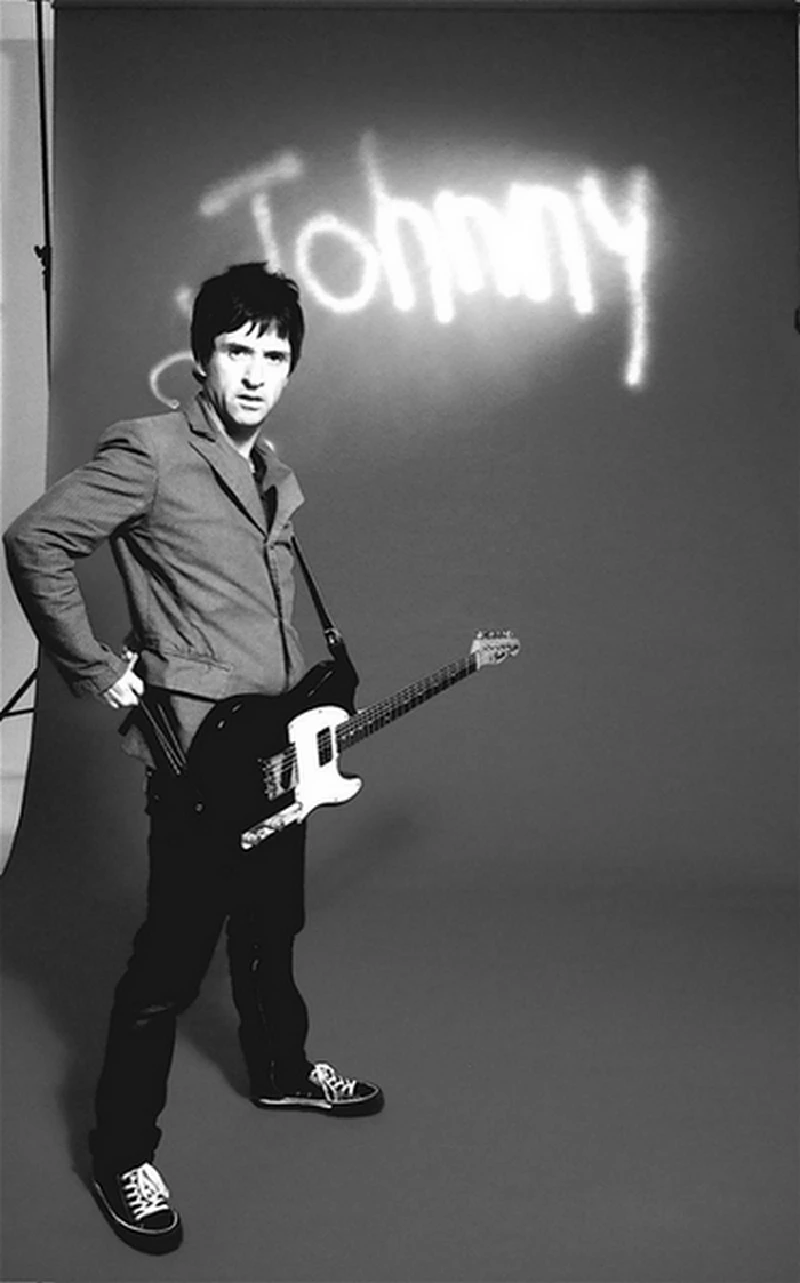
profiles |
|
Set the Boy Free (2016) |
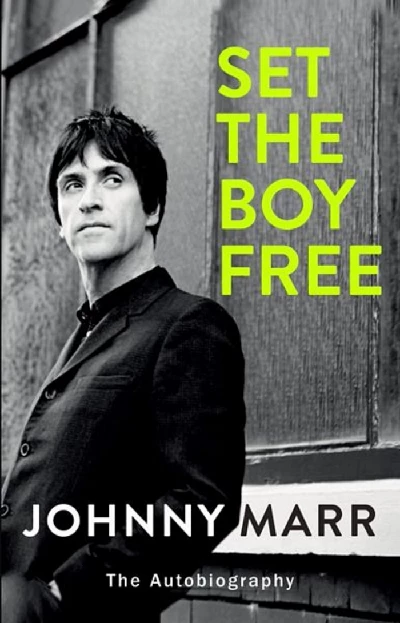
|
| Mary O'Meara discovers both the inner and outer worlds of Johnny Marr, from vivid childhood memories to the meteoric rise of The Smiths and beyond in his newly published memoirs 'Set the Boy Free' |
| Profile (2015) |
live reviews |
|
Institute, Birmingham, 16/3/2013 |
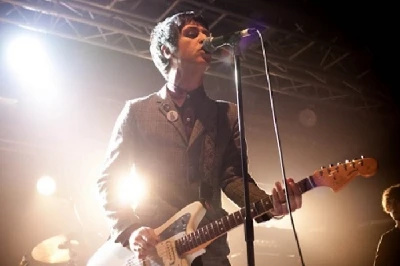
|
| Anthony Strutt watches former Smiths guitarist Johnny Marr at the Institute in Birmingham play a stunning show on his first tour under his own name to promote 'The Messenger', which is his debut solo album |
reviews |
|
The Messenger (2013) |
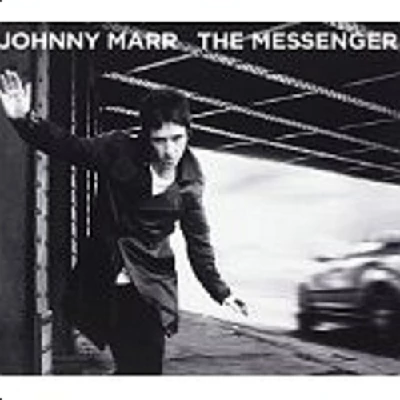
|
| Fantastic first ever solo single from former Smiths guitarist, Johnny Marr |
most viewed articles
current edition
Carl Ewens - David Bowie 1964 to 1982 On Track: Every Album, Every SongArmory Show - Interview with Richard Jobson
John McKay - Interview
Colin Blunstone - Thalia Hall, Chicago, 16/7/2025
Bathers - Photoscapes 1
Billie Eilish - O2 Arena, London, 10/7/2025
Loft - Interview
Visor Fest - Valencia, Spain, 26/9/2025...27/9/2025
Sir Tim Rice - Interview
Robert Forster - Interview
previous editions
Heavenly - P.U.N.K. Girl EPManic Street Preachers - (Gig of a Lifetime) Millennium Stadium, Cardiff, December 1999
Beautiful South - Ten Songs That Made Me Love...
Peter Perrett - In Dreams Begin Responsibilities Interview Part One
Boomtown Rats - Ten Songs That Made Me Love....
Oasis - Oasis, Earl's Court, London, 1995
Coldplay - Wembley Arena. London, 16/8/2022
Prolapse - Interview
Trudie Myerscough-Harris - Interview
Pixies - Ten Songs That Made Me Love...
most viewed reviews
current edition
Davey Woodward - Mumbo in the JumboSick Man of Europe - The Sick Man of Europe
Lucy Spraggan - Other Sides of the Moon
Blueboy - 2
Amy Macdonald - Is This What You've Been Waiting For?
Bush - I Beat Loneliness
Suzanne Vega - Flying With Angels
Phew, Erika Kobayashi,, Dieter Moebius - Radium Girls
Alice Cooper - The Revenge of Alice Cooper
Cynthia Erivo - I Forgive You
Pennyblackmusic Regular Contributors
Adrian Janes
Amanda J. Window
Andrew Twambley
Anthony Dhanendran
Benjamin Howarth
Cila Warncke
Daniel Cressey
Darren Aston
Dastardly
Dave Goodwin
Denzil Watson
Dominic B. Simpson
Eoghan Lyng
Fiona Hutchings
Harry Sherriff
Helen Tipping
Jamie Rowland
John Clarkson
Julie Cruickshank
Kimberly Bright
Lisa Torem
Maarten Schiethart